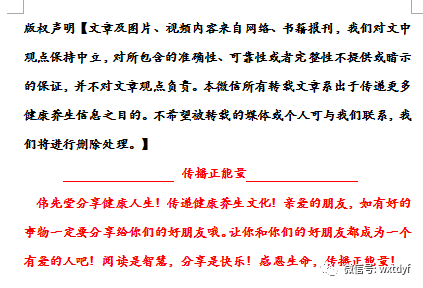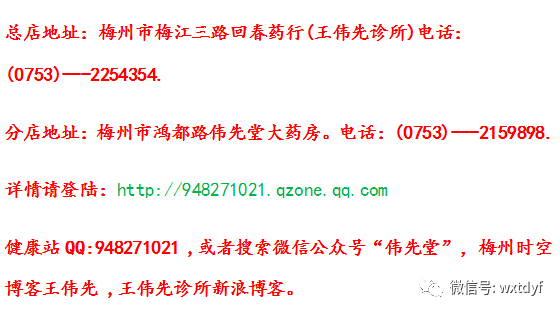Professor Wang Qi from Beijing University of Chinese Medicine led a research team that conducted an epidemiological survey over 30 years, revealing that there are currently 9 main types of constitutions among the Chinese people, with the relatively healthy Pinghe Tizhi (平和体质, Harmonious Constitution) accounting for 32.75%.
Pinghe Tizhi (平和体质, Harmonious Constitution) is characterized by a strong body, good appetite, sound sleep, an optimistic personality, and strong adaptability to society and nature. Individuals with this constitution are less prone to illness.
Nourishment Method: Avoid overeating or undereating, and refrain from consuming excessively cold or hot foods. Emphasize a diet rich in grains, vegetables, and fruits, while minimizing oily and spicy foods. For exercise, young people may choose running or playing ball games, while the elderly should engage in moderate walking or practicing Tai Chi.
Qi Xu Tizhi (气虚体质, Qi Deficiency Constitution) is characterized by weakness in speech, frequent spontaneous sweating, shortness of breath, and persistent fatigue. Individuals with this constitution are prone to colds, have a weak resistance to illness, and may struggle to recover from sickness, often experiencing conditions like organ prolapse, such as gastric ptosis.
Nourishment Method: Consume foods that tonify Qi and strengthen the spleen. Engage in gentle exercises like walking or Tai Chi, and regularly massage the Zu San Li (足三里, Stomach 36) acupuncture point.
Shi Re Tizhi (湿热体质, Damp-Heat Constitution) is characterized by an oily face and nose, a tendency to develop acne and sores, and a noticeable odor upon speaking. Individuals with this constitution often experience sticky and unsatisfactory bowel movements and yellowish urine.
Nourishment Method: Maintain a light diet, focusing on sweet, cool, and neutral foods. Avoid spicy and warming foods. Refrain from smoking and drinking alcohol. Avoid staying up late and excessive fatigue. Suitable exercises include middle-distance running, swimming, hiking, and various ball games or martial arts.
Yin Xu Tizhi (阴虚体质, Yin Deficiency Constitution) is characterized by a fear of heat, frequent warmth in the palms and soles, flushed cheeks, dry skin, dry mouth, insomnia, and constipation.
Nourishment Method: Consume foods that are sweet, cool, and moistening. Avoid warm and drying foods. Ensure a proper midday rest. Avoid staying up late and intense exercise, and control sweating during workouts, replenishing fluids promptly.
Qi Yu Tizhi (气郁体质, Qi Stagnation Constitution) is characterized by sensitivity, melancholy, and fragility. Individuals with this constitution are generally thin, often feel gloomy, sigh without reason, and may experience palpitations and insomnia.
Nourishment Method: Consume foods that promote Qi circulation, relieve stagnation, aid digestion, and invigorate the spirit. Avoid tea, coffee, and other stimulating beverages before bedtime.
Yang Xu Tizhi (阳虚体质, Yang Deficiency Constitution) is characterized by cold hands and feet, an aversion to cold foods, and a generally quiet and introverted personality.
Nourishment Method: Consume foods that are sweet and warming to tonify Qi. Avoid raw and cold foods. Self-massage the Qi Hai (气海, Sea of Qi), Zu San Li (足三里, Stomach 36), and Yong Quan (涌泉, Kidney 1) acupuncture points, or regularly moxibustion on Zu San Li and Guan Yuan (关元, Conception Vessel 4).
Tan Shi Tizhi (痰湿体质, Phlegm-Damp Constitution) is characterized by a broad and plump body, a soft and fatty abdomen, oily skin, excessive sweating, and puffy eyes, often leading to drowsiness.
Nourishment Method: Maintain a light diet, minimizing fatty meats and sweet, sticky, and oily foods.
Xue Yu Tizhi (血瘀体质, Blood Stasis Constitution) is characterized by bleeding gums while brushing teeth, red streaks in the eyes, dry and rough skin, frequent pain, irritability, forgetfulness, and a tendency to be impatient.
Nourishment Method: Consume foods that invigorate blood circulation, dissolve masses, promote Qi flow, and soothe the liver to relieve stagnation. Avoid fatty pork and ensure adequate sleep.
Te Bing Tizhi (特禀体质, Allergic Constitution) refers to individuals who are allergic to pollen or certain foods, which is termed as Te Bing Tizhi in TCM.
Nourishment Method: Maintain a light and balanced diet, with appropriate combinations of coarse and fine grains, and a reasonable mix of meat and vegetables. Minimize spicy foods, strong-smelling foods, and foods containing allergens.
Edited by: Wei Xiantang

Wei Xiantang reminds: Dietary and exercise health maintenance should be conducted under the guidance of a professional physician.


If you find this helpful, please give a thumbs up at the bottom!

